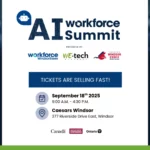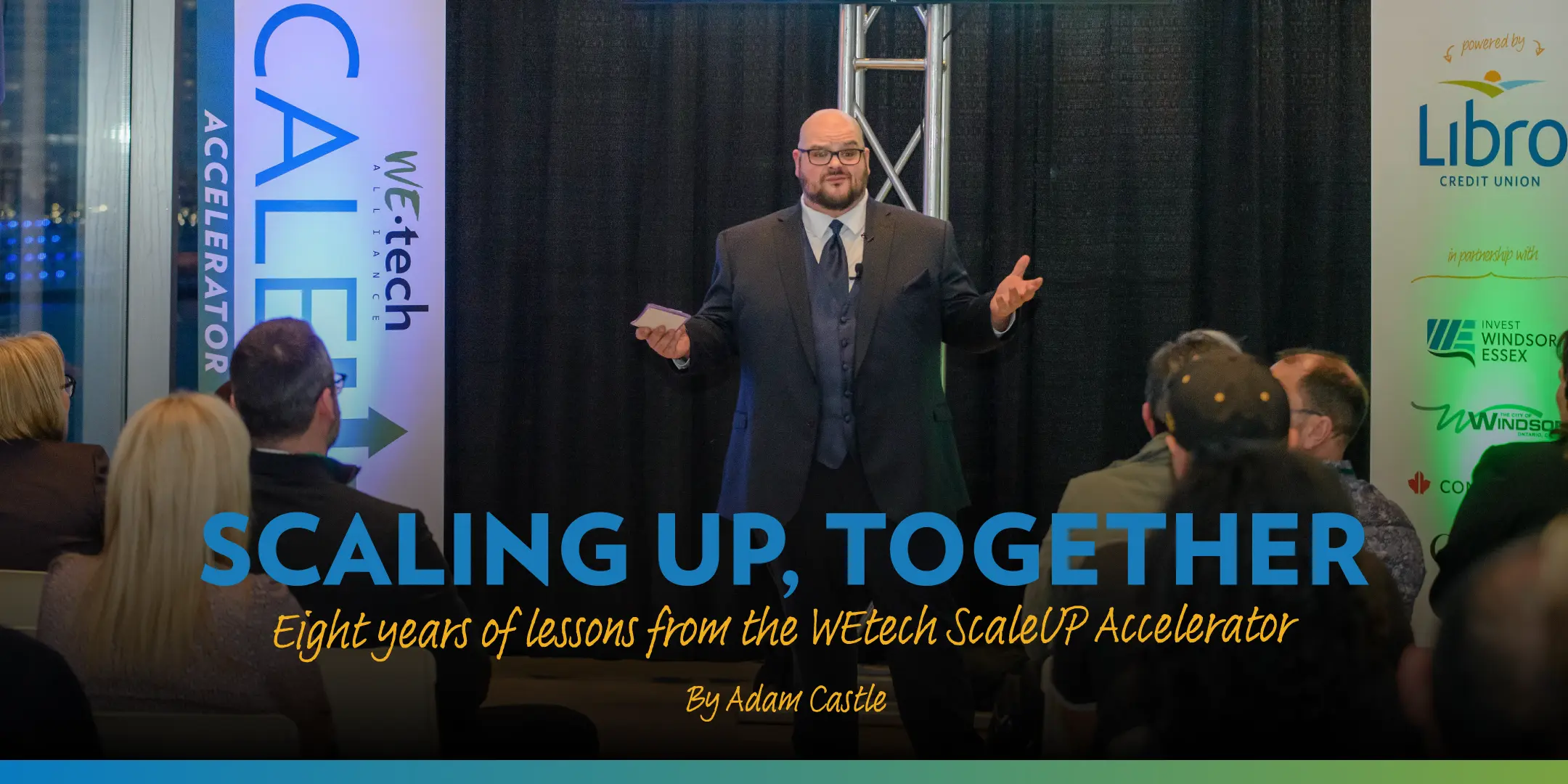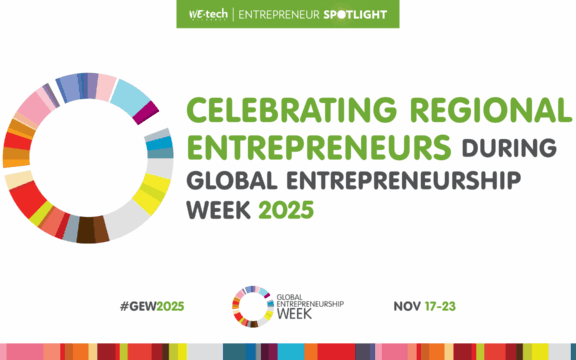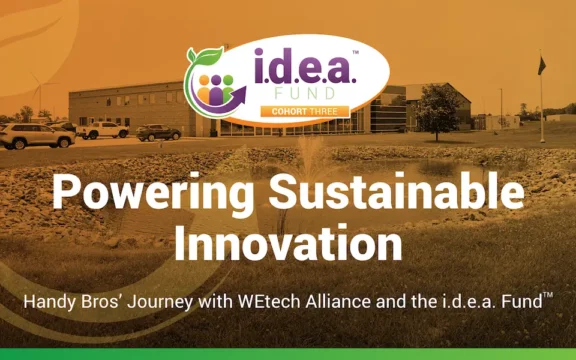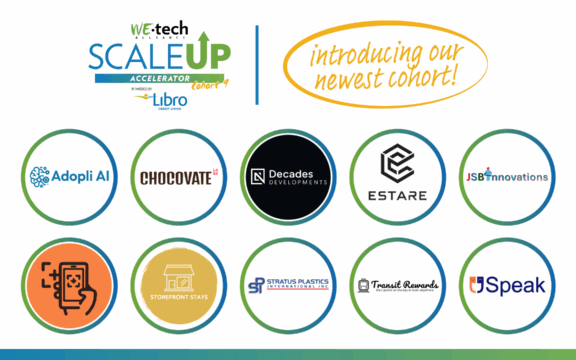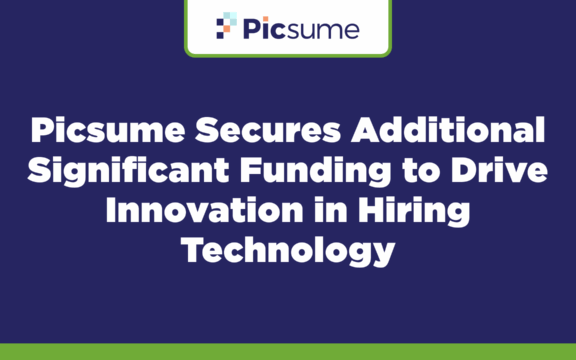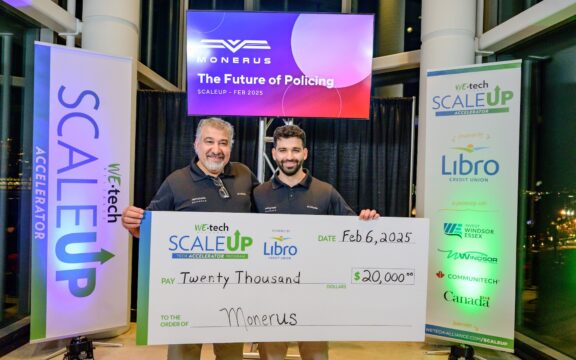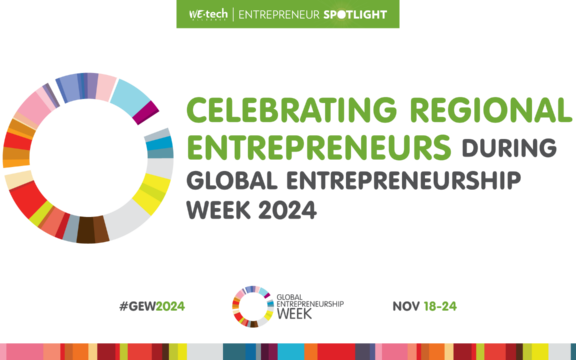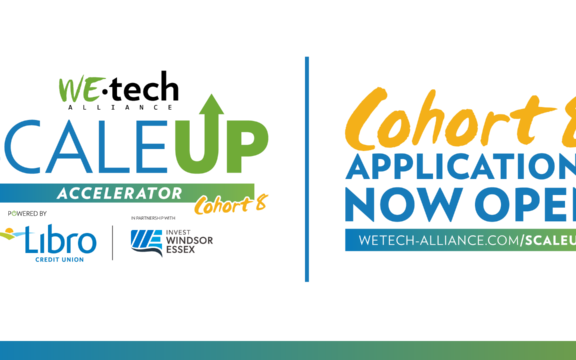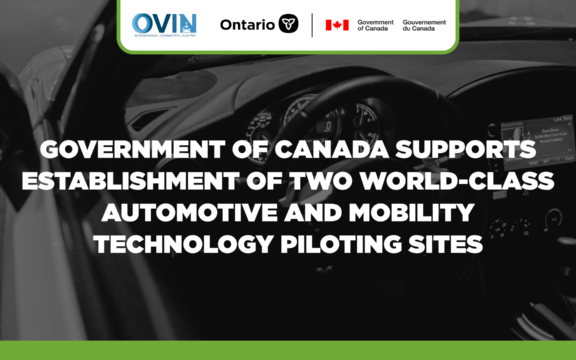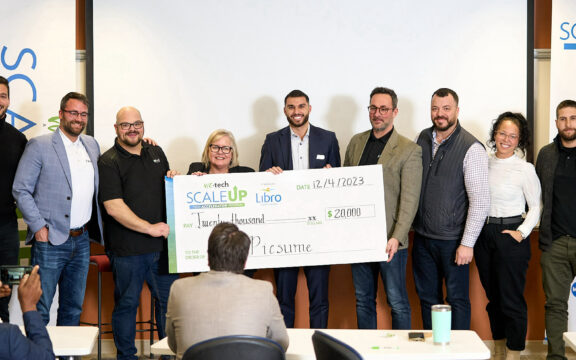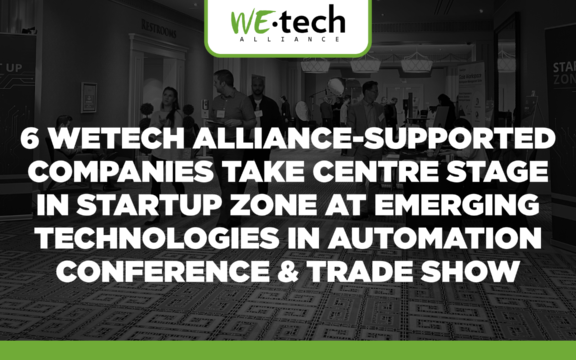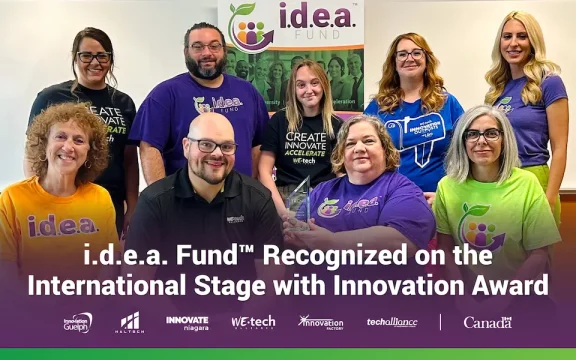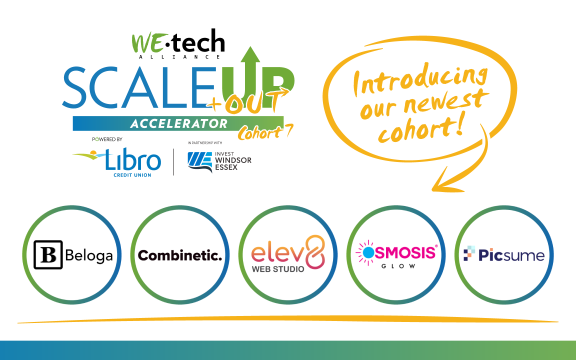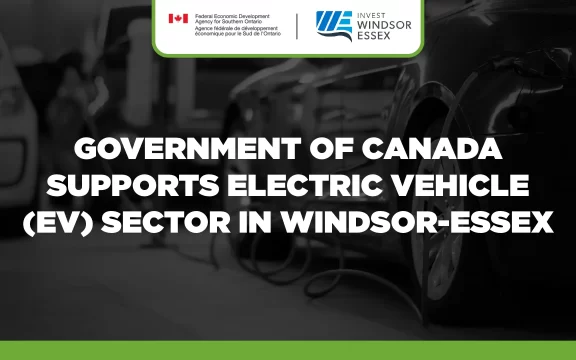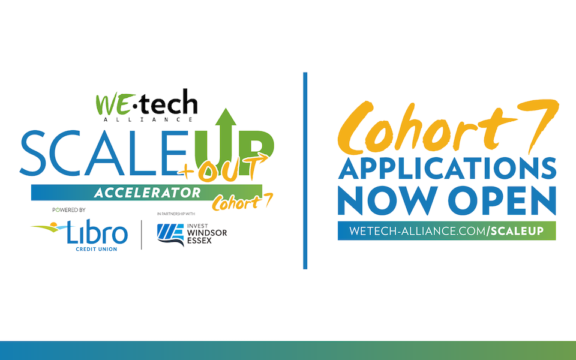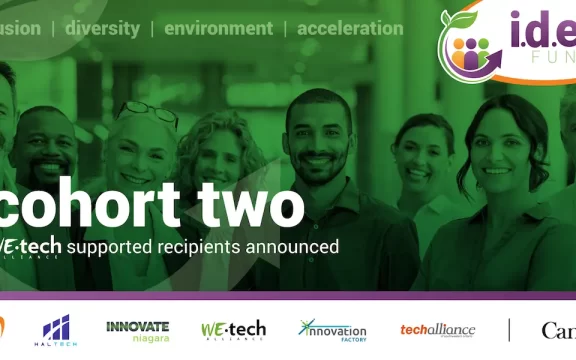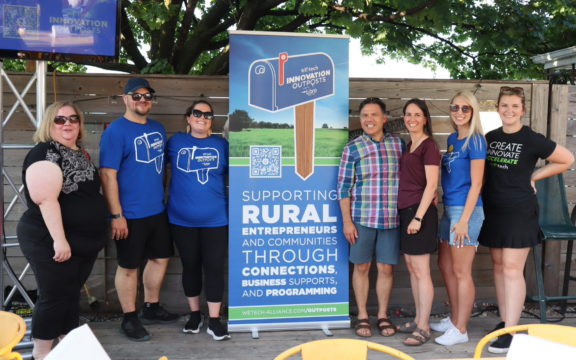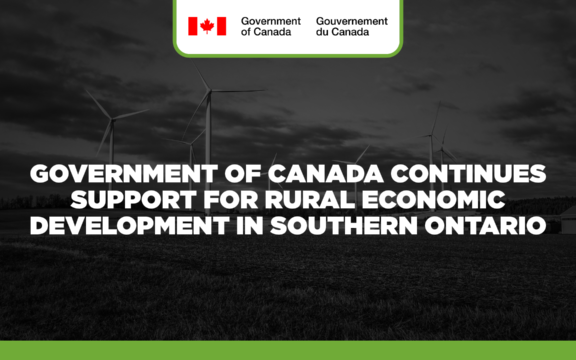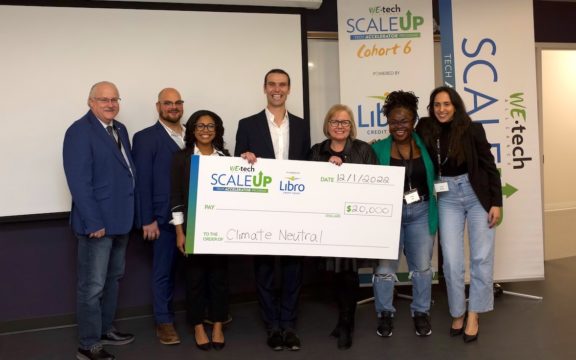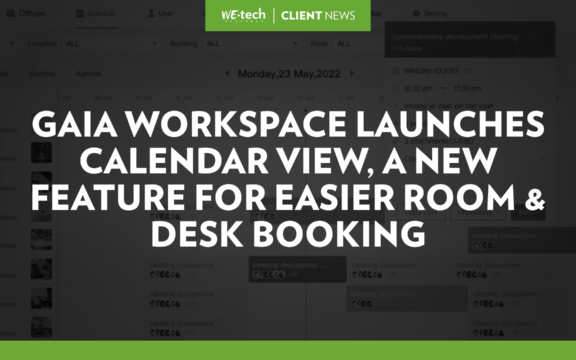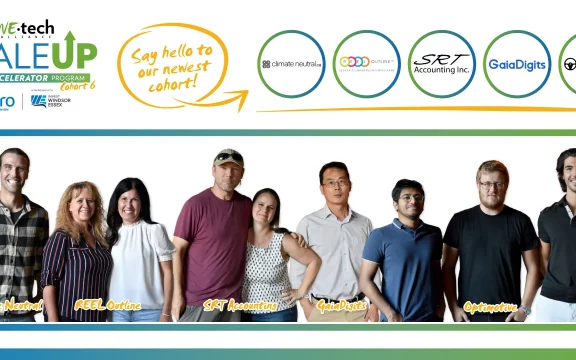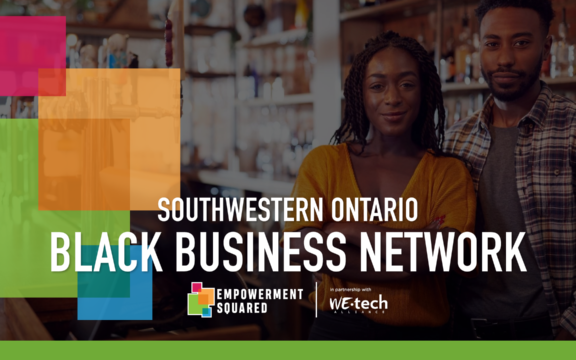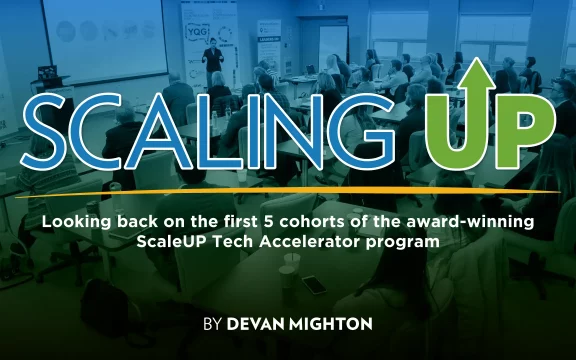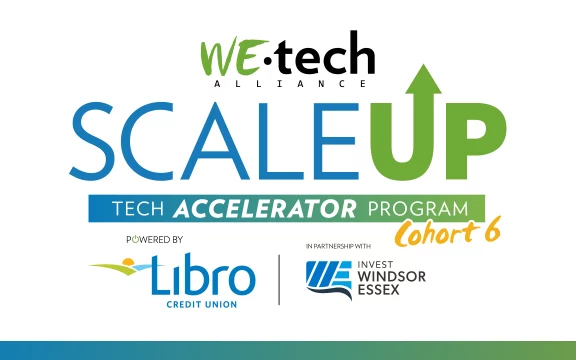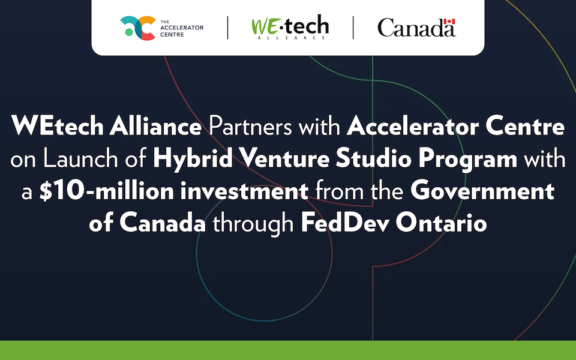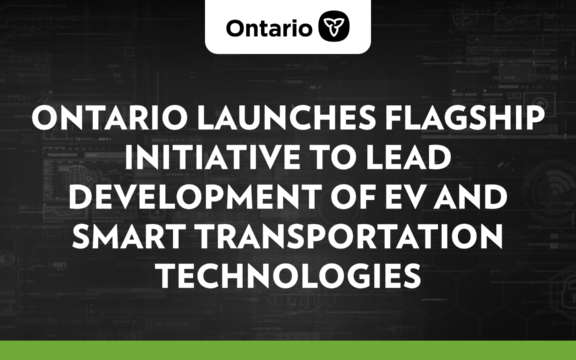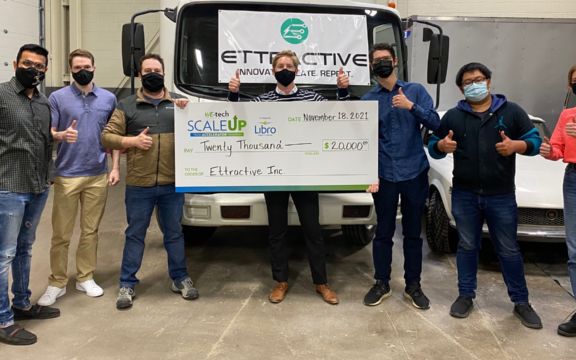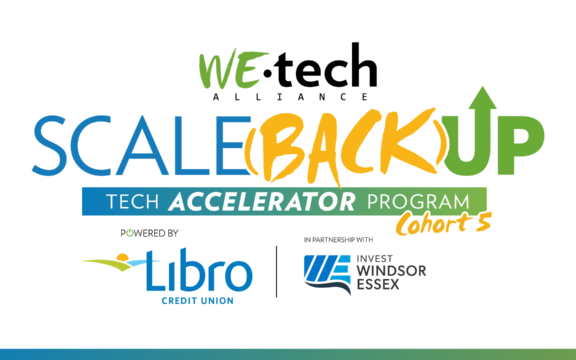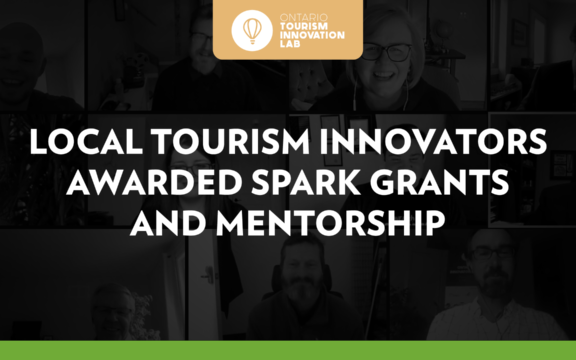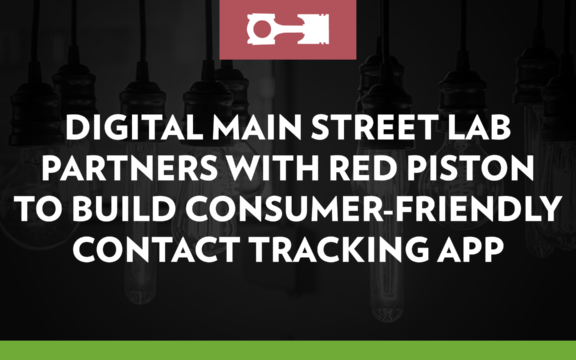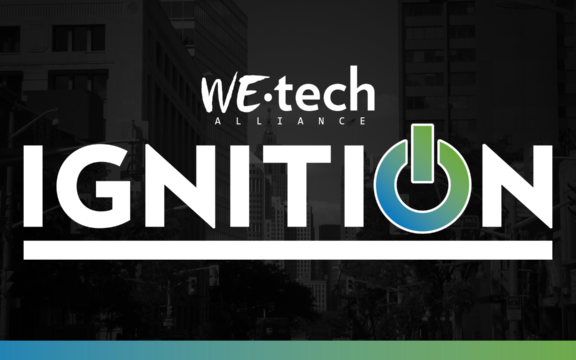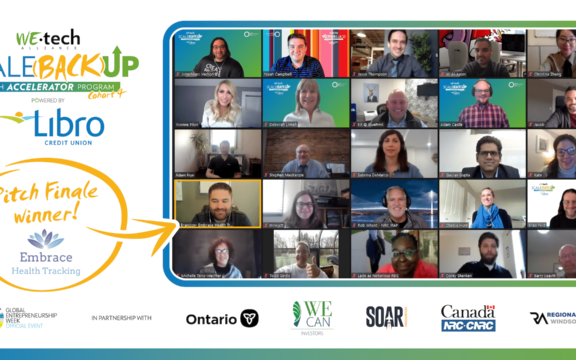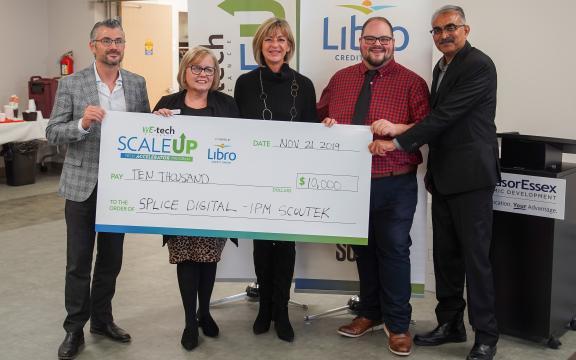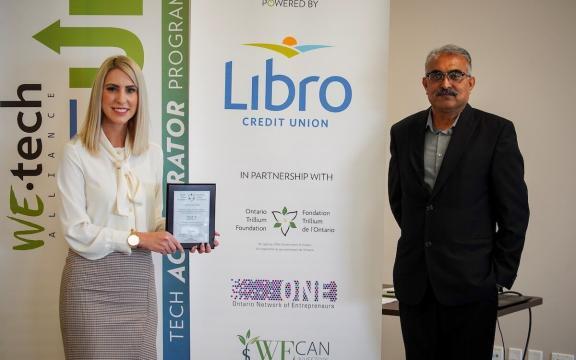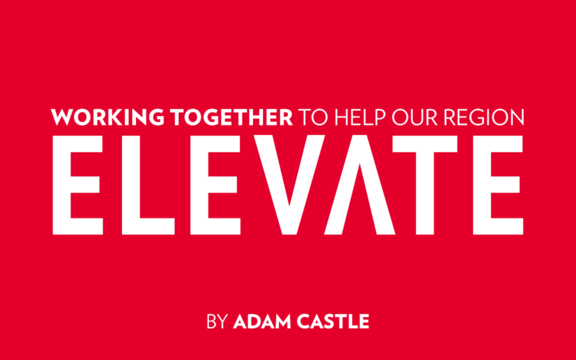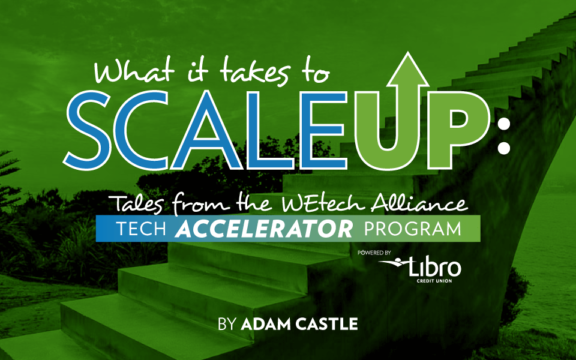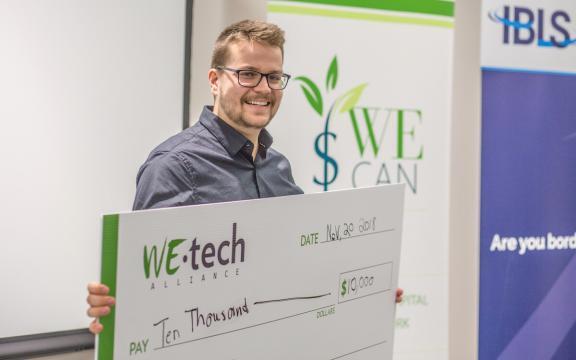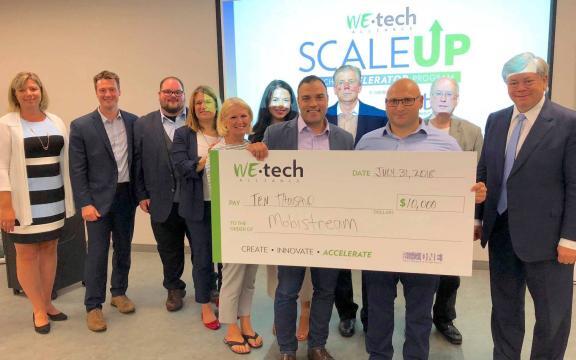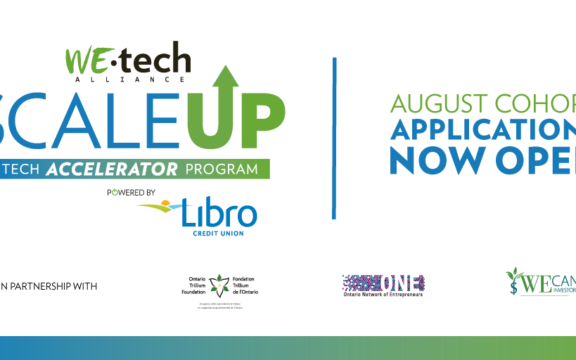Eight years of lessons from the WEtech ScaleUP Accelerator
When we first sketched out ScaleUP, it wasn’t a polished program, it was a problem we wanted to help solve. What would it take to help a handful of ambitious, innovative founders in Windsor-Essex and Chatham-Kent get the support they actually needed? Not one-off advice. Not endless pitch contests. But a focused space to build momentum: to learn, to test, to connect with people who could help move them forward.
That idea – powered from day one by a true community champion, Libro Credit Union – became a real program. And every year since, we’ve evolved it to meet the moment.
After the pandemic, we paused the regular programming and launched Scale(back)UP, a recovery edition focused entirely on helping existing companies stabilize and adapt. One year, we prioritized early validation and traction. Another, we built around export readiness and cross-border growth. What hasn’t changed is the core: a belief that founders thrive when they’re surrounded by a strong community, and when that community backs them with more than encouragement, providing them with the important opportunities and partnerships they require to learn, iterate, and grow.
This year, as we open applications for Cohort 9, we’re evolving the program again.
With new partners at Communitech and FedDev Ontario, we’re welcoming up to five founders from outside the region to join us. In our experience, we know that innovation doesn’t stop at the edge of a map, and great companies aren’t bound by postal codes. But make no mistake: this is still a Windsor-Essex and Chatham-Kent program. Built here. Grown here. And rooted in a real commitment to our community.
Since launch, 38 companies have brought 170 new products and services to market, created over 200 jobs, and generated more than $39 million in revenue. The outcomes matter. But the people matter more.
Over the years, we’ve noticed that the founders who get the most out of ScaleUP tend to do a few things differently.
They show up with questions.
Nick Scozzaro, winner of our very first cohort, said it best: “We didn’t know what we didn’t know.”
His team at MobiStream (now ShadowHQ) used the program to dig into fundamentals like sales strategy, financial structure, and customer insights, the kinds of things that don’t always show up front and centre in a pitch deck, but absolutely shape a business.
They use the full runway.
The value of the program isn’t just in the prize or the coaching sessions. It’s in what happens between them. Founders who show up ready to do the work, follow up with mentors, put feedback into action, look at their solutions with a critical eye, and genuinely connect with fellow participants are the ones who leave with real momentum. This isn’t a one-size-fits-all bootcamp. It’s a pressure-tested lab for teams that want to get sharper and grow as part of a community.
They treat the prize like a bonus, not the whole strategy.
The $20,000 isn’t a pat on the back. It’s a lever. For early-stage founders, that kind of capital can extend a runway, pay down technical debt, or unlock a key hire. It creates breathing room in a moment that’s often defined by constraint.
Picsume, winners of Cohort 7, used their success as a springboard to sharpen their go-to-market strategy, raise over $1 million in seed funding, and find ways to complement their investment with another $1 million in follow-on grants.
Optimotive didn’t win their cohort, but they didn’t walk away empty-handed. They left with increased traction, enhanced visibility, and a foundation that helped them secure a $2 million seed round. Since then, they have scaled internationally, have two offices in Windsor, and one across the border with mobility Investor NewLab Detroit.
Smart founders use the prize to accelerate a plan, not replace one.
They don’t try to do it alone.
ScaleUP is built around shared experience. Every year, there’s a moment where a founder realizes they’re not the only one wrestling with a tough supplier call, a failed prototype, or a funding delay. That kind of vulnerability creates trust. And that trust turns into partnerships, referrals, feedback, and long-term collaboration.
They see Windsor-Essex and Chatham-Kent as part of the engine, not as an obstacle.
Cohort 3 winner, IPM Scoutek is a great example of this. Their greenhouse pest management platform cuts labour and pesticide costs by up to 30% for their customers, and they proved it with real local growers in Kingsville and Leamington, not hypotheticals. That kind of traction didn’t come from going it alone. It came from building strong partnerships with our regional industries and embracing our strengths.
In cohort 9, every applicant will set clear goals (and get extra points on their final assessment) for creating regional impact: hiring locally, testing with local partners, sourcing in the region, or growing a presence here. We revisit those goals throughout the program. Because scale, in our view, should help strengthen the place that enables it.
So, here’s what we’re looking for:
– Founders who want to build something that lasts.
– People who see Windsor-Essex and Chatham-Kent not as a barrier, but as a base.
– Builders who understand that building a company and building a community aren’t separate goals, they’re part of the same strategy.
If that’s you, we’d love to meet you. Applications for Cohort 9 close on September 7th, 2025.

Adam Castle
Director of Venture Services & Partnerships,
WEtech Alliance

